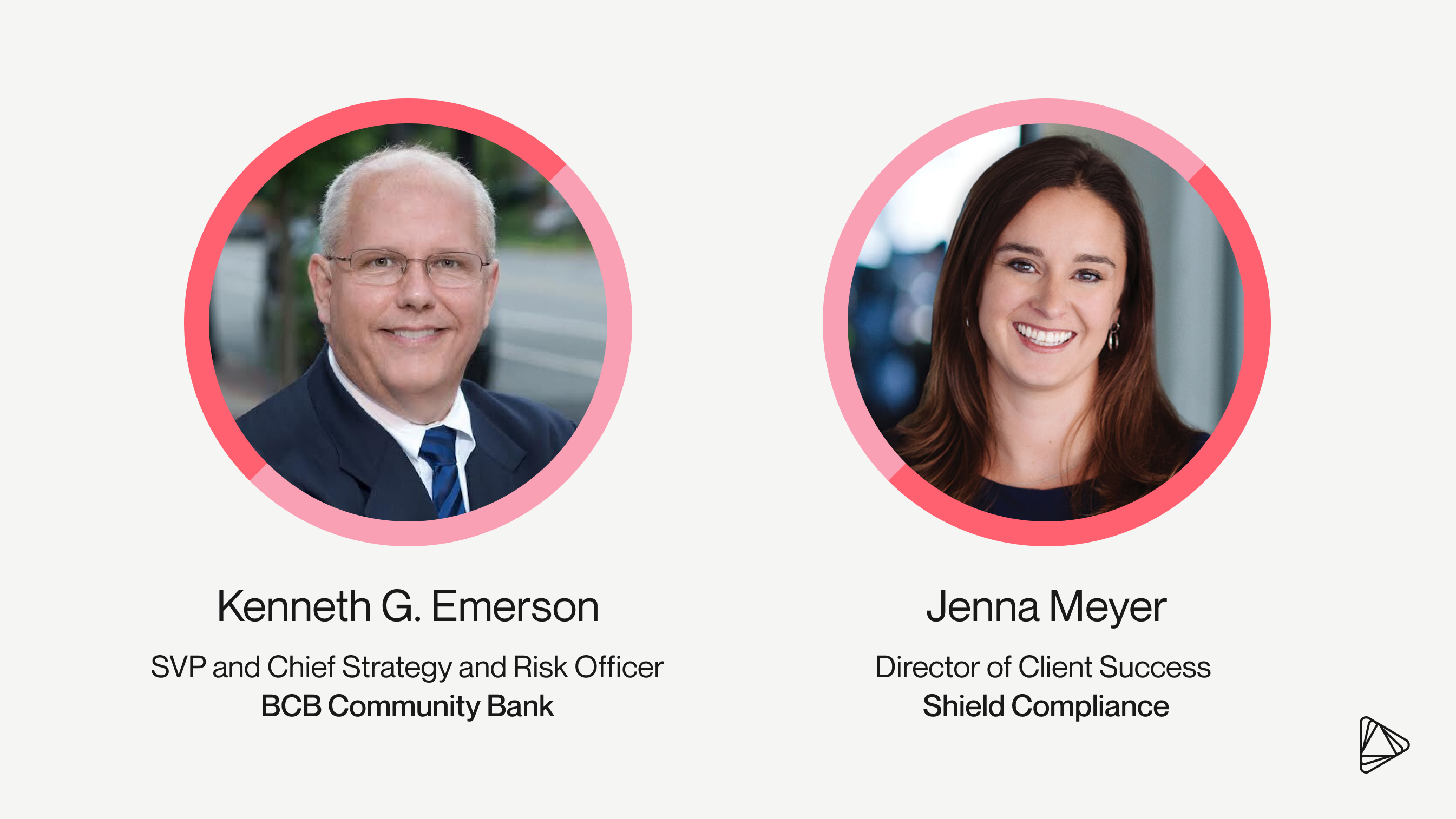Share
Cannabis Compliance: How banks can tap into the budding marijuana industry
Apr 20, 2023

Today is April 20th — or “4/20” for those who celebrate — a holiday in celebration of (and in support of legalizing) marijuana.
The origin of why today became the unofficial/official cannabis appreciation day is a bit unclear. Some say it’s because a bunch of teenagers would leave high school and smoke every day at 4:20pm. Others believe it to be related to police codes for marijuana. Still, for whatever reason, it stuck and is now a well-known reference in popular culture.
As adult-use marijuana has become legal in an increasing number of states in the US — 21 states plus Washington, DC, and Guam — a previously illegal industry operating under the table as cash-only has moved mainstream. And as more states legalize marijuana, a growing number of legal cannabis businesses and their employees will require legitimate financial services.
But how can banks and fintechs enter the cannabis banking space while remaining compliant with the strict regulations that come along with servicing marijuana-related businesses?
I sat down with Kenneth Emerson, SVP/Chief Strategy & Risk Officer at BCB Community Bank, and Jenna Meyer, Director of Client Success at Shield Compliance, to hear their tips for banks considering opening up a cannabis program.

To start, can you share a bit of background about your experience in the cannabis banking space?
KENNETH EMERSON:
I’ve been with BCB Community Bank for three years. When I started with them, I wasn’t aware that they were banking the marijuana industry. I dove in and immediately had that department reporting to me. I’ve learned a lot about the industry since then. I’ve experienced three examination cycles now.
JENNA MEYER:
I’ve spent nearly 20 years in the financial services industry, mostly software companies for financial institutions. I joined Shield Compliance four years ago and lead client implementations and the client support organization. Shield’s BSA/AML compliance management software solution helps banks and credit unions manage risk, comply with regulations, and satisfy operational demands associated with serving the legal cannabis market.
How have you seen the cannabis industry evolve over the past 3-4 years?
JENNA MEYER:
Even four years ago, there were really two camps of financial institutions in the cannabis banking space. There were those that were loud and proud that they were cannabis-friendly, and then there were financial institutions that were cannabis-friendly, but it was a hush-hush secret; they weren’t necessarily advertising it. Over time we’ve seen regulators gain a better understanding of cannabis banking, and as a result, more financial institutions are entering the space and being more open about supporting the industry.
KENNETH EMERSON:
BCB has been banking the marijuana industry for seven years. At this point, we have about 290 cannabis customers, so we have a pretty substantial base. Whenever regulators come into an exam, they make recommendations on what we can do differently, so the space is constantly changing. But, the primary change we’ve seen is when New Jersey legalized recreational marijuana last year. So we saw a rapid influx of applications for deposit accounts. Now we’re waiting to see how many of those will actually get their licenses and be able to open their stores later this year.
What is the biggest misconception about banking cannabis clients?
KENNETH EMERSON:
A lot of banks fear the risk of being non-compliant. But if you’re being diligent when you’re building your program and procedures, you should be okay because there are clear guidelines from regulatory bodies on what you need to do. There are a number of institutions that think the reputational risk isn’t worth it — particularly if their client base leans more conservative.
JENNA MEYER:
I’d agree with that. A lot of financial institutions are worried about what regulators will think. Is this frowned upon? Will we pass our exams? Will this invite extra scrutiny in other areas of my business? In our experience, we have not seen negative consequences materialize as long as you are running a compliant program.
What are some challenges for financial institutions offering a compliance program?
JENNA MEYER:
The most important thing for banks serving this industry is to ensure they are only accepting cash from legal sources. This requires understanding where the deposits are coming from and that their cannabis business customers are not over-depositing. For example, if a cannabis retailer sold $1 million of legal cannabis products, but deposited $2 million, the bank needs to know where that extra money is coming from. One of the things we do at Shield is help financial institutions integrate into a cannabis company’s accounting and state seed to sales systems to validate their sales data, alleviating some of that manual work for the cannabis company and the bank. We work very closely with our bank customers to ensure they have the tools and resources they need to operate as compliantly and efficiently as possible.
KENNETH EMERSON:
It’s a dynamic industry that’s constantly changing. Things are always a work in progress. Each state is unique in how it’s formulating its roadmap. So you have to keep track of any changes in the state's legal environment. That’s one of the benefits we get from our relationship with Shield because they track all that for us.
There are different classifications of companies. There are those that grow it, those that manufacture it, those that sell it, and those that provide services to the industry. So, we have to break down the companies by tier, and then our due diligence requirements differ based on which tier they’re in. For example, someone who provides security services to a marijuana business and is getting paid in cash isn’t selling the product themselves, but making most of their money from a marijuana business. So those different tiers have different levels of risk than, say, someone growing or selling it.
JENNA MEYER:
The tiers include non-plant-touching entities as well. An accountant, for example, could be classified as a tier 2 cannabis business if a substantial percentage of their revenue comes from plant-touching companies.
KENNETH EMERSON:
Exactly, we have clients like landlords whose tenants own a marijuana-related business or lawyers who represent cannabis companies come to us and say they’ve had a hard time finding banks that will service them.
Another challenge is that cannabis commissions can’t issue their licenses fast enough to meet the demand for retail outlets. So, there’s still a fair amount of illegal product in the market. The risk is that marijuana companies might layer in illegal funds with legal funds — that’s why it’s important to get accounting and sales information. Some of these barriers will come down ultimately.
How can banks navigate the fact that marijuana is illegal on the federal level, but legal in an increasing number of states?
KENNETH EMERSON:
Quite simply, by partnering with someone who understands the space and can help them get started. Help them put an effective policy and program in place that will help them pass a regulatory exam. It’s a lot of compliance and documentation on who the customer is and what their cashflows are like. The industry is somewhat of the wild wild west; there are some cowboys out there trying to navigate things rapidly. We’ve seen some interesting moves and ultimately shut down some accounts. You just have to stay on top of it.
JENNA MEYER:
Don’t create a program in a vacuum. There are a lot of organizations, such as BCB, that have successfully been banking cannabis for years, so don’t feel like you need to reinvent the wheel. Also, make sure that you document everything. Make sure your policy and your procedures capture everything you’re doing.
One thing I’ve heard from a lot of regulators in the industry is that if you have questions, ask. It is still a relatively new industry for banking, and there’s still a bit of a learning curve for everyone. Regulators know this and are more open to questions if you’re asking how to do something the right way up front instead of asking for forgiveness later.
How are your onboarding and underwriting processes for cannabis companies different from those for other small businesses?
KENNETH EMERSON:
One of the key differences is that you need a copy of their application to the cannabis commission. You need their license number if they’ve been issued a license already. But the other thing is that we do a larger amount of due diligence on the beneficial owners of the company. We do the same regular compliance checking on beneficial owners of any company we onboard, such as running them against OFAC lists and ensuring we’re not violating any laws. But with marijuana companies, we do full background searches, too. We do negative news searches on the web to make sure they haven’t been involved in questionable activity and make sure they will be completely clean and not objectionable to regulators when they examine us.
JENNA MEYER:
In addition to that, you have more strict beneficial ownership requirements. For a standard (non-cannabis) business, you check beneficial ownership for people with 25% ownership and up. With cannabis companies, the normal threshold is between 10-15%. We’ve seen some states that have gone to the extreme where it is .0001% ownership. As Ken pointed out, you need to verify their cannabis licenses as well as their state business licenses.
In this continually evolving space, what trends are you keeping your eye on in the next year or few years?
KENNETH EMERSON:
It’s a wide-open world. Anything could happen at this point. The SAFE Act could pass in the Senate. It could become legal for banks to service the market. In that situation, several things happen. Most likely, Mastercard and Visa get into the space and allow for transactions to occur at dispensaries enabling electronic transactions. And then other banks will have the ability to do so without fear of federal retribution.
That would change the entire market. There will be more competition in the space. Our capacity to charge monthly fees would be challenged. The good news is that we have a leg up and know what we’re doing.
But it could go the other way, too. Depending on what happens with the election next year, the federal government could become more conservative and crackdown. So it’s kind of wide-open in terms of what direction we’re going.
JENNA MEYER:
I completely agree with what Ken is saying, and will add that even if (or when) SAFE Banking passes, there will still be core compliance tasks that I don’t foresee changing. Financial institutions will still need to ensure that cannabis companies are licensed entities in good standing. They will still need to do due diligence on beneficial owners to make sure they know who the owners are, verifying that there are no shell corporations hiding illegal entities, etc. They’re still going to be responsible for understanding where the money is coming from. They’re still going to have that government reporting requirement. And we don’t think that will change too much. There may be a few changes here and there, but regulations will not disappear overnight.
So, I think there will be a fair amount of financial institutions that jump in at that point, but it may not be as lucrative for those entities trying to learn the compliance rules late in the game, as they won’t be able to charge the same fees that are charged currently in the industry.
KENNETH EMERSON:
Right, it’s not a cheap compliance program.
JENNA MEYER:
But it can be worthwhile! There is definitely a first-mover advantage for financial institutions that are leveraging their experience to scale their programs, get more creative with their pricing, offer new services such as lending, and even extend their services outside of their home markets.
Awesome. Thanks again for chatting with me today. Anything you think we missed?
JENNA MEYER:
Legal cannabis sales in the US are projected to reach $72 billion by 2030. In Michigan, tax revenue from cannabis alone provided over $200 million, which was invested in the local economy (schools, roads, etc.). They are trying to make sure tax revenue is going back into the communities that have legalized it. It’s been very interesting to see the widespread impact of cannabis legalization. Whether you personally agree with it or not, it does make a big difference in our communities.
This is the only industry that is legal at the state level (in some states), and not legal at the federal level. You can’t fly this under the radar. Cannabis companies need to be completely transparent and work with a financial institution that has an established cannabis banking program. And if you’re a financial institution, make sure you are doing all of your due diligence to ensure you are operating compliantly while taking advantage of the financial rewards of this line of business.
KENNETH EMERSON:
I’ve always felt strongly that marijuana should be legalized for a lot of really good reasons. Number one, interdiction is a failed policy; it’s a waste of money. We should have hard-working Americans making the money and not drug lords in other countries making the money. We should have strict labeling guidelines and the capacity to sell at the retail level where there is control over non-sale to minors. Labeling is a key factor so that you know what you’re getting. And manufacturing guidelines that establish minimum safety requirements.
Legalization on a national level would also open it up to medical research so that we can determine whether it’s really harmful on recreational levels or not. Right now, they can’t do research on it because it’s a class one substance. Legalizing will facilitate that and potentially come up with medicinally beneficial uses of it too.
Additionally, it would cease the incarceration of innocent individuals (who partake in something no more harmful than a martini), ending the negative effects of being tainted with a crime.
Lastly, you’d put revenue in the hands of local governments through taxes. Many of those funds could be diverted into the communities and substance abuse programs to ensure this isn’t a habit-forming product. All of these things lend themselves to us moving forward with legalization.





